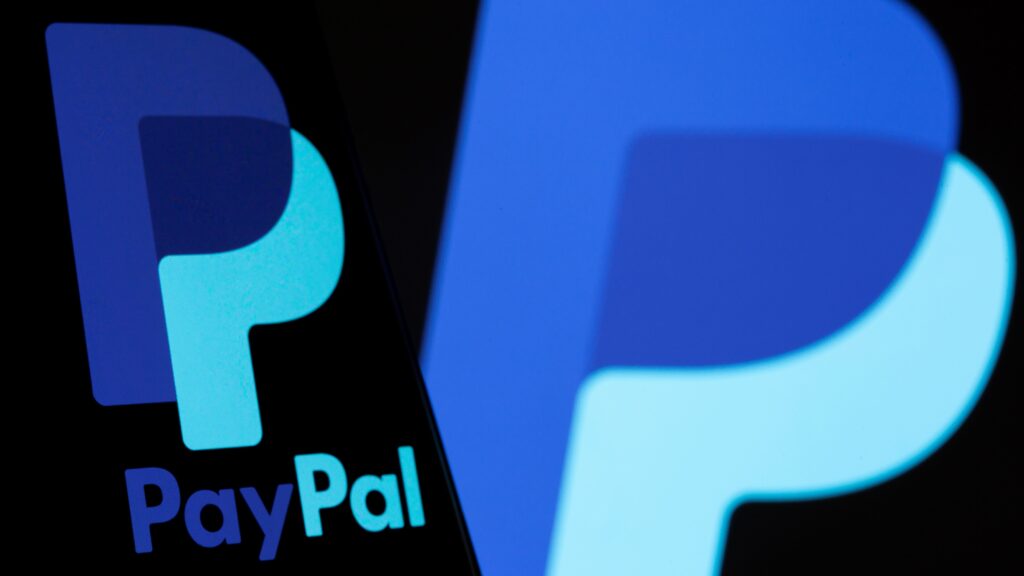- Honey is an internet browser extension that advertises finding and applying coupon codes for online shoppers.
- PayPal acquired Honey in 2020 for $4 billion.
- YouTube tech journalist MegaLag posted a video on Dec. 21 that accuses Honey of scamming influencers.
- MegaLag accused Honey of breaching content creator affiliate links, providing limited coupon codes and publishing dishonest advertisements.
A YouTube creator is accusing PayPal of fraudulent behavior tied to the internet browser extension Honey, which advertises finding and applying coupon codes for online shoppers.
YouTube creator MegaLag posted a video titled, “Exposing the Honey Influencer Scam” on Dec. 21 accusing Honey, which is owned by PayPal, of deceiving consumers and influencers by hijacking links that pay influencers for products they promote, providing limited coupon options and publishing inaccurate advertisements.
The 23-minute video, the first in a three-part series, according to MegaLag, had more than 9.4 million views, as of Thursday morning. The video concludes with what appears to be a tease for a follow-up.
“I wouldn’t be surprised if this ends up going down as one of the most aggressive, shameless marketing scams of the century,” MegaLag said in the video.
In response to the video, PayPal Chief Corporate Affairs and Communications Officer Amy Bonitatibus provided USA TODAY with the following response:
“Honey is free to use and provides millions of shoppers with additional savings on their purchases whenever possible. Honey helps merchants reduce cart abandonment and comparison shopping while increasing sales conversion. Honey follows industry rules and practices, including last-click attribution.”

MegaLag denied to comment when contacted by USA TODAY.
Here’s what to know about the accusations made by MegaLag and where they line up with industry standards.
What is Honey?
Honey is a free browser extension that claims to find coupon codes during online shopping checkout.
Honey was released in 2012 and PayPal purchased it in 2020 for approximately $4 billion, according to a PayPal news release.
When PayPal acquired Honey, PayPal’s news release said the shopping tool served about 17 million monthly active users and helped consumers save about $1 billion annually.
After purchasing Honey, PayPal launched PayPal Rewards, which incentivizes using the Honey extension. PayPal users earn points when using the browser extension, even if they don’t redeem any coupons, according to the Honey website. Those points can be used to redeem cash back, PayPal shopping credit or gift cards.
In the video, MegaLag called this rewards program a “lame cashback scheme.”
The creator proceeded to provide an example of how much money he earned through an affiliate link versus PayPal Rewards cashback when making the same purchase. MegaLag provided an example completed through Honey Gold, Honey’s former rewards program utilized before PayPal purchased it.
When purchasing a NordVPN standard package (about $95) through his own affiliate link, MegaLag reported making about $35 from the sale. When purchasing the same package but activating PayPal Rewards, rather than using his affiliate link, MegaLag reported earning about 89 cents in cashback.
Not the first creator to speak out
In the video, MegaLag mentions that upon conducting research about Honey, there was virtually no other information on the topic.
However, since the video has gained traction, a clip of YouTube creator Markipiler talking about Honey during a Twitch stream in 2020 has resurfaced.
Mark Fischbach (the creator behind Markipiler) did not get into much detail, but he did voice his “distrust” for the shopping tool.
“I think they’ve even offered me (a brand deal) and I said no because I just don’t trust Honey,” Fischbach said during the stream. “I have a feeling in like a couple years there’s going to be the great Honey conspiracy of like 2022.”
The day after MegaLag’s video published, Fischbach reposted his stream clip to X with the comment, “I KNEW IT!!!”
Breaching affiliate links or last-click attribution?
In the video, “Exposing the Honey Influencer Scam,” MegaLag accuses Honey of breaching affiliate links.
MegaLag sets up the following example: If a consumer clicks an affiliate link in the description of a YouTube video, the consumer will be taken to the corresponding website. Without using Honey, if the consumer makes a purchase from that link, the YouTube creator will earn a commission.
Thinking in real-world scenarios, an affiliate link is similar to a salesperson helping a customer at a store. For example, if a department store salesperson helps a customer find and purchase a piece of jewelry, the salesperson earns commission.
If a consumer has the Honey browser extension installed and accepts a Honey pop-up − whether it be a coupon the shopping tool offers or just a message indicating that Honey didn’t find any coupons – Honey will earn a commission from the online purchase. The YouTube creator, whose affiliate link the consumer originally followed, will not receive a commission.
This model is called last-click attribution, which gives credit to the last touchpoint a user interacts with before making a purchase. Though there are other types of attribution − such as first-click, which provides a commission to the first touchpoint interacted with − last-click is considered the industry standard.
In the video, MegaLag claims Honey is “exploiting” last-click attribution. When it comes to content creator versus content creator, MegaLag says last-click attribution is usually fair, but when it is content creator versus Honey, “there’s no real competition.”
“Honey pops up right at the end of your purchasing journey, virtually guaranteeing they’ll win that last click,” MegaLag says in the video. “They, of course, know this and do anything they can to get that last click. Even where there’s no coupon codes to offer.”
Another industry standard when it comes to affiliate marketing is the stand-down policy. This policy, implemented by host sites, in this case a retailer, requests that browser extensions respect affiliate marketing. If a retailer utilizes a stand-down policy, extensions like Honey cannot claim credit, even if they are the last touchpoint, according to Wildfire, a fintech company that offers white-label cashback services.
In response to the MegaLag video, YouTube creator Hank Green released a video, “The Honey Scam and the Ridiculous Mess of Affiliate Marketing” on Dec. 25. In his video, Green discussed how affiliate marketing functions in the “small business ecosystem.”
Green said the ecosystem of small business creators looking to make money and being attracted to affiliate marketing is “ripe for exploitation.”
“How responsible should creators be for understanding the business models of the companies that they do brand deals for?” Green posed in his video. “I am certain that many creators aren’t really savvy enough or have the time to do that work. The brand deal ecosystem, it’s where, for most creators, where most of the money comes from, so it can be really hard to say no and it can be really easy to try to not think too hard about how things work.”
Ultimately, like MegaLag, Green claimed Honey and PayPal are taking advantage of content creators.
USA TODAY has reached out to experts for more context on best practices in the industry.
Where does Honey source coupons from?
MegaLag also accused Honey of offering limited coupon codes, not providing customers with all of the best options.
In the video, MegaLag said he was often able to find redeemable coupon codes from other shopping tools like RetailMeNot when Honey indicated no coupons could be found.
PayPal’s Bonitatibus told USA TODAY that merchants ultimately decide what coupons are offered to consumers through Honey.
When it comes to sourcing its coupons, Bonitatibus said they are manually gathered by Honey’s team, sourced from deal networks, made available through merchant partnerships and sourced from users who share codes with Honey.
Previous advertising concerns
In the video, MegaLag also accused Honey of releasing dishonest advertisements claiming the shopping tool searches for all available coupon codes, implying that a customer who uses Honey does not need to search for their own coupons.
In 2020, the National Advertising Division opened an inquiry into a Honey advertisement that claimed, “With just a single click, Honey will find every working code on the internet and apply the best one to your cart,” according to a Better Business Bureau news release.
However, Honey informed the National Advertising Division, after the inquiry was opened, that it had been in the process of discontinuing the ad for “business reasons,” according to a Better Business Bureau news release. Honey also agreed to permanently discontinue the related advertisements. Thus, the National Advertising Division inquiry was closed.
Who is MegaLag?
MegaLag is a New Zealand YouTube creator who had 508,000 subscribers, as of Monday afternoon. Self-identified as a tech investigative journalist, the creator, who confirmed to USA TODAY his first name is Jonathon, is known for his videos that “expose” companies or experiment with different technology.
Greta Cross is a national trending reporter at USA TODAY. Follow her on X and Instagram @gretalcross. Story idea? Email her at gcross@gannett.com.












More Stories
The Biggest SEO News, Best Side Hustles, and Weirdest Niche Sites of 2024
100 Best Niches for Affiliate Marketing (And How To Choose One)
This Is the Secret Marketing Tool Your Small Business Needs to Compete With the Big Brands